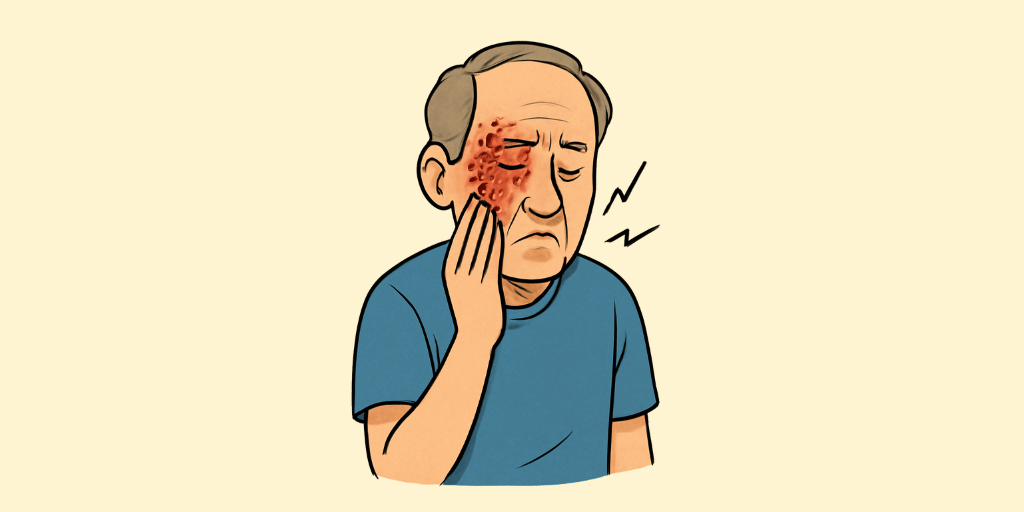Ayurvedic Name: Visarpa
Description:
Visarpa is a severe skin and tissue infection resulting from aggravated Pitta and Kapha, which leads to red, inflamed, and spreading lesions resembling Erysipelas or Herpes Zoster. It often occurs due to poor digestion, heat accumulation, or suppressed infections, causing burning pain, fever, and ulceration. Ayurvedic management includes blood purification (Raktashodhana), Virechana therapy, and cooling herbs.
Signs & Symptoms:
- Vata Rakta Shotha (Erysipelas): Red, swollen patches on the skin, typically affecting the face or legs.
- Rakta Shonita (Redness in Skin): Intense redness in the affected area, often with a defined edge.
Shotha (Swelling): Swelling and warmth in the infected area, often accompanied by pain. - Jwara (Fever): Mild to high fever as the body responds to infection.
- Rukshata (Dryness): Dry, cracked skin around the infected area due to inflammation.
- Daha (Burning Sensation): A sensation of burning or warmth in the affected area
Diagnosis:
Clinical Examination and Tzanck Smear
Risk Factors:
- Dietary Factors
Poor dietary habits that impair the immune system, such as excessive sugar or fat intake, which can reduce the body’s ability to fight infections.
Low intake of fruits and vegetables, which weakens the immune system and increases susceptibility to skin infections. - Lifestyle Factors
Poor hygiene, leading to skin infections that can develop into erysipelas.
Exposure to infections, particularly in crowded environments or areas with inadequate sanitation. - Medical Conditions
Diabetes or other chronic conditions that impair the immune system and increase the risk of infections.
Skin conditions or open wounds that can become infected and lead to erysipelas.
Complications:
- Sepsis (Vishama Jwara): Bacterial infections from erysipelas can lead to sepsis, a life-threatening systemic infection.
- Tissue Necrosis (Sparsha Kshaya): Untreated erysipelas can lead to necrosis in the affected skin and underlying tissue.
- Chronic Lymphatic Issues (Rakta-Lymphatic Dushana): Repeated infections can cause damage to the lymphatic system, leading to lymphoedema (swelling).
- Scar Formation (Twak Granthi): Erysipelas can cause scarring in the skin due to the formation of ulcers and blisters.
- Impaired Immune Function (Pratirodh Kshaya): Recurrent infections can compromise the immune system, making the body more susceptible to other infections.
Epidemeology:
More common in individuals with weakened immune systems, such as the elderly, diabetics, or those with chronic skin conditions.
Affects both men and women, though elderly individuals are more susceptible due to thinning skin and reduced immune function.
Incidence increases in colder months due to increased exposure to respiratory infections and poor hygiene.
Approximately 0.1-0.5% of the population is affected by erysipelas annually, with higher rates in developing countries due to sanitation issues.

